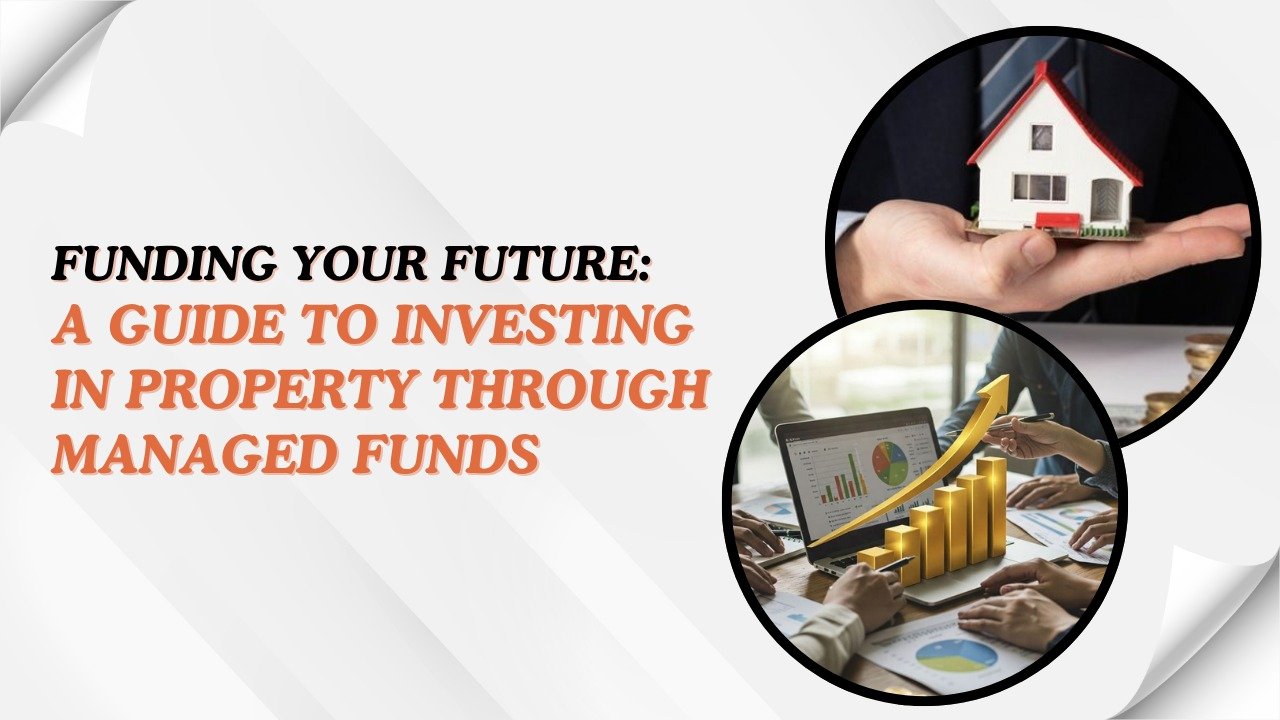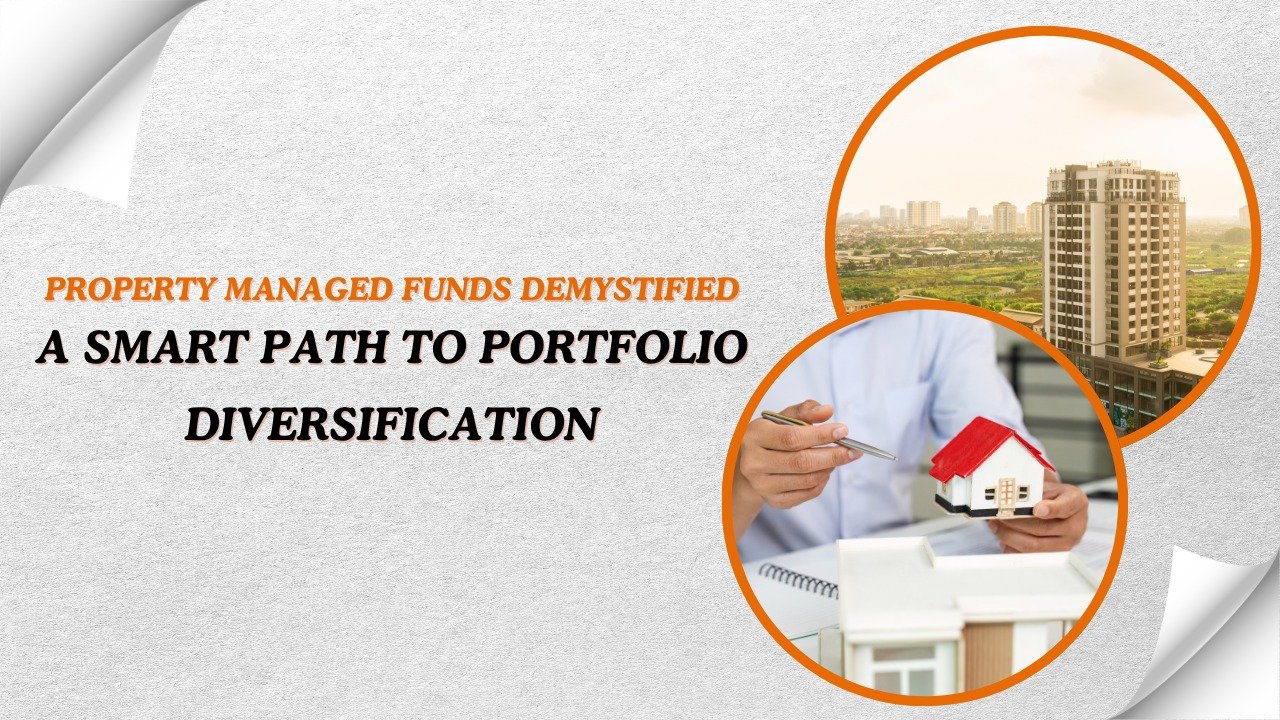The Australian property market has always been a cornerstone of...
Read MoreNewsfeed
Share Article
Categories/Tags
Register To Our E-News
Latest News
Is a Property Investment Fund Right for You? 5 Key Questions to Ask
You’re committed to building wealth and you believe in the...
Read MoreWhy Choose a Fund? The Advantages Over DIY Property Investment
Let’s paint a familiar picture. You’ve saved diligently, you believe...
Read MoreNavigating the Shift: Adapting Your Property Strategy to Current Market Trends
Let’s be honest: the Australian property market can feel like...
Read MoreFunding Your Future: A Guide to Investing in Property Through Managed Funds
Let’s talk about one of the biggest hurdles in property...
Read More
Top Real Estate Investment Strategies in Australia for 2025: A Smart Investor’s Guide
The Australian property market has always been a cornerstone of wealth creation, but it’s not a monolith. What worked a

Is a Property Investment Fund Right for You? 5 Key Questions to Ask
You’re committed to building wealth and you believe in the power of property. But when you look at the traditional

Why Choose a Fund? The Advantages Over DIY Property Investment
Let’s paint a familiar picture. You’ve saved diligently, you believe in property as a wealth-builder, and you’re ready to invest.

Navigating the Shift: Adapting Your Property Strategy to Current Market Trends
Let’s be honest: the Australian property market can feel like a runaway train. Just when you think you’ve got a

Funding Your Future: A Guide to Investing in Property Through Managed Funds
Let’s talk about one of the biggest hurdles in property investment: the money. For many Australians, the dream of funding

Property Managed Funds Demystified: A Smart Path to Portfolio Diversification
Let’s talk about one of the biggest challenges in property investing: putting all your eggs in one basket. You’ve worked
Industry
Is a Property Investment Fund Right for You? 5 Key Questions to Ask
-
 Real Estate Science
Real Estate Science

You’re committed to building wealth and you believe in the power of property. But when you look at the traditional path—saving a huge deposit, navigating auctions, and managing tenants—it can feel daunting. Maybe you’ve heard about property investment funds and wondered if they’re a smarter alternative.
It’s a great question. While funds offer incredible benefits, they’re not a one-size-fits-all solution. The last thing you want is to jump into an investment that doesn’t align with your goals or lifestyle.
So, how do you decide? Instead of getting lost in complex jargon, let’s break it down with five straightforward questions. Your honest answers will create a clear picture of whether a property investment fund is the right partner for your financial journey.
1. What’s Your “Why”? (Clarifying Your Investment Goals)
Before looking at any investment, you need to look in the mirror. What are you truly trying to achieve?
- Are you seeking truly passive income? Do you want exposure to property returns without the hassle of being a landlord?
- Is long-term wealth building your focus? Are you comfortable locking away capital for 5+ years to benefit from compounding growth?
- Are you looking to diversify? Do you already own a direct property or other assets and want to spread your risk?
The Tipping Point: If your goal is a hands-off approach to long-term wealth creation and diversification, a property investment fund is an excellent candidate. If you’re looking for a short-term flip or crave the control of selecting your own bathroom tiles, the DIY route might be a better fit.
2. How Do You Value Your Time? (The Hands-On vs. Hands-Off Test)
Let’s be blunt: direct property investment is rarely passive. It’s a part-time job that involves:
- Researching suburbs and attending inspections.
- Managing tenants, leases, and rent collection.
- Coordinating (and paying for) repairs and maintenance.
- Keeping up with tax and compliance obligations.
A property investment fund hands all of this over to a professional management team. Your involvement is typically limited to transferring your capital and reviewing periodic updates.
The Tipping Point: If the thought of dealing with a leaking tap at 2 AM makes you shudder, or if your career and family life leave little room for a second job as a property manager, the fund model will be a breath of fresh air.
3. What’s Your Risk Tolerance? (The Power of Diversification)
When you buy a single investment property, you’re placing a very concentrated bet. Your entire return depends on one suburb, one street, and one tenant. A problematic tenant or a local market dip can have a significant impact.
A property investment fund, by its very nature, is diversified. Your capital is pooled with other investors and spread across a portfolio of properties. This might include different geographic locations (e.g., assets in multiple capital cities) and different sectors (e.g., industrial, commercial, and residential).
The Tipping Point: If the idea of your financial future being tied to the performance of a single asset makes you nervous, the built-in diversification of a fund provides a much more resilient foundation for your portfolio.
4. What Level of Access Are You Looking For? (Democratising Property)
The best commercial and industrial properties—the ones with long-term leases to strong tenants—often have multi-million dollar price tags. For most individual investors, these high-quality, institutional-grade assets are completely out of reach.
A property investment fund breaks down this barrier. By pooling resources from many investors, the fund can acquire these premium assets, giving you a slice of deals that were once reserved for the ultra-wealthy or large institutions.
The Tipping Point: If you want to move beyond the typical residential market and access a higher caliber of property asset with potentially stronger, more stable returns, a fund is arguably the only practical way to do it.
5. Are You Comfortable with a Data-Driven Approach? (Emotion vs. Analysis)
Buying a home or investment property is often an emotional process. We fall in love with a view or a particular neighbourhood.
A professional property investment fund operates differently. It removes emotion from the equation. Investment decisions are based on rigorous data analysis, market research, and disciplined financial models. The goal is to identify undervalued opportunities and manage risk systematically.
The Tipping Point: If you trust a scientific process over a “gut feeling” and prefer investments driven by evidence rather than emotion, you will align well with the philosophy of a professional fund.
Your Next Step: Where to From Here?
If you’ve found yourself nodding along to these questions, a property investment fund could be a perfect fit for your strategy. So, what should you do next?
- Do Your Homework: Research potential fund managers. Look for a strong track record, a transparent philosophy, and a team with real expertise.
- Read the Fine Print: Always carefully review the Product Disclosure Statement (PDS). This document outlines the fund’s strategy, fees, risks, and how to invest. It’s your most important source of information.
- Seek Independent Advice: This is crucial. Speak with a qualified financial adviser who can provide personalised advice based on your complete financial situation. The Moneysmart.gov.au website is a great government resource to help you get started.
At Real Estate Science Fund, we believe in clarity and transparency. Our entire approach is built for investors who answer “yes” to the questions above. We leverage data and science to build diversified property portfolios, aiming to deliver strong, risk-adjusted returns for our investors.
<a href=”https://realestatesciencefund.com.au/”>If our philosophy resonates with you, we invite you to learn more about our specific investment process and offerings</a>.
The Final Verdict
Choosing the right investment path is one of the most important financial decisions you’ll make. A property investment fund isn’t the right choice for everyone, but for the time-poor, risk-aware investor seeking passive exposure to a diversified property portfolio, it presents a compelling, modern alternative to the traditional DIY model.
By asking these five key questions, you’re not just choosing an investment—you’re choosing a strategy that fits your life and your future.
Disclaimer: This blog post contains general information only and does not constitute financial or investment advice. You should consider seeking independent legal, financial, taxation or other advice to check how the information relates to your unique circumstances.


